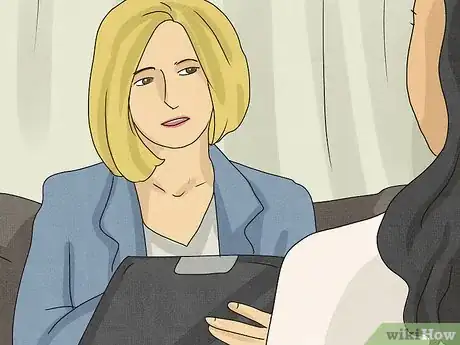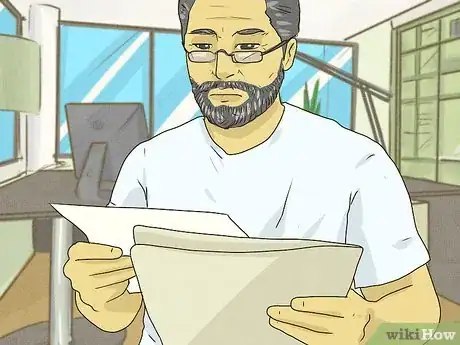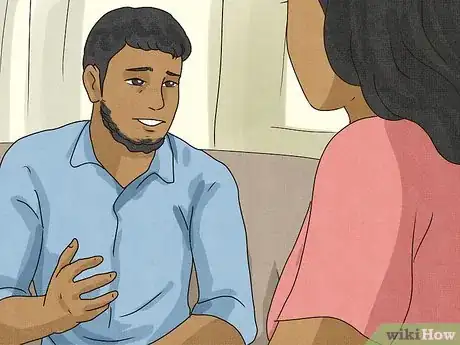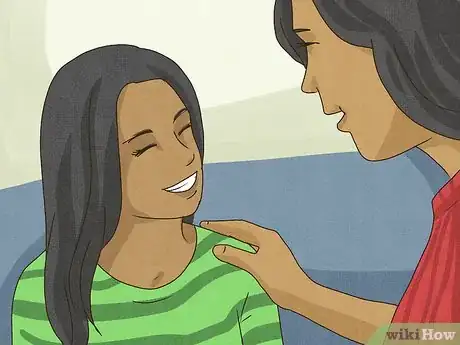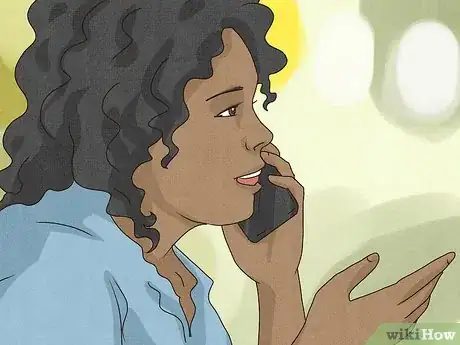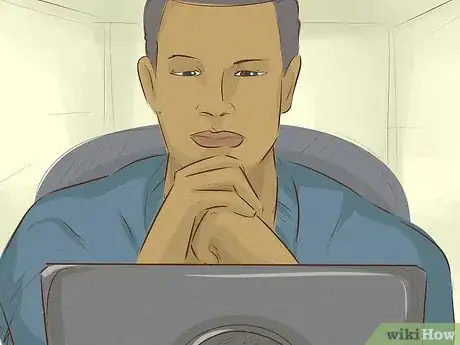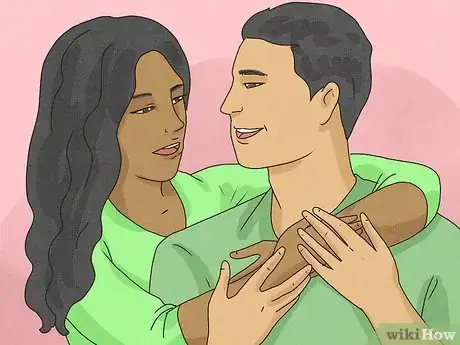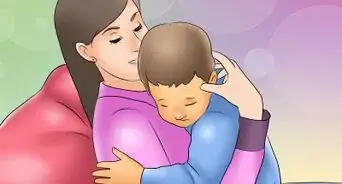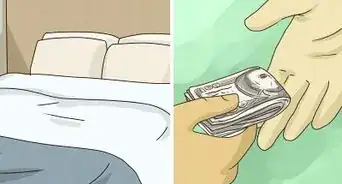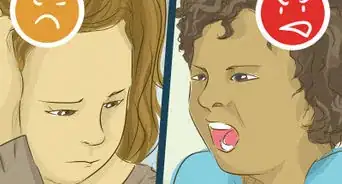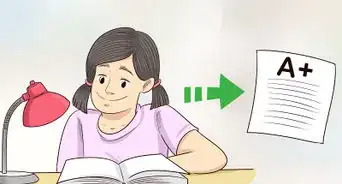This article was co-authored by Steven Hesky, PhD. Dr. Steven Hesky is a Licensed Clinical Psychologist with over 37 years of experience. He specializes in long-term psychotherapy with adults and adolescents. His training includes Freudian, Jungian, and Existential approaches to psychotherapy, hypnosis, family therapy, marriage counseling, and biofeedback. Dr. Hesky holds a BA in Philosophy from Lake Forest College and an MA and PhD in Existential Clinical Psychology from Duquesne University.
wikiHow marks an article as reader-approved once it receives enough positive feedback. This article has 13 testimonials from our readers, earning it our reader-approved status.
This article has been viewed 466,990 times.
The nest of family love is like a nest of birds. When it is the right time to fly, the young will fly away, as is the way of life. Parents must deal with the absence of family, friends, and love when children have flown from the nest of their family to build their own. However, for some people, especially for the primary caregiver, this can be a time of great emptiness and sadness, that can easily tip into depression if unheeded. This article will discuss methods that will help your children to leave home secure in the knowledge that they have a solid home base behind them, and ways for parents to deal with grief from separation.
Steps
-
1Accept support. If you find that you're really not coping and feel a deep sense of emptiness, sadness, or an inability to get your life back on track after the children leave, it's important to get help. You might be suffering from depression or a similar psychological ailment that is preventing you from enjoying life to its fullest. Talk to a professional. Cognitive therapy or similar types of therapy that enable you to talk through your issues might work well. Or, you may simply need a listening ear and confirmation that what you're going through is real, does matter, and in time, will pass.
- Acknowledge your grief. It doesn't matter what other people think or say about getting on with it. Unacknowledged grief will gnaw away at you if you don't face it and let yourself be upset for a time. Allow the grief to work through your system.
- Treat yourself. While going through the hardship of grief, don't neglect yourself. Have a regular massage, go to a movie now and then, buy your favorite expensive chocolate box, etc. All sadness and no happy moments is a recipe for continued blues.
- Consider having a "letting go" ritual. Having a ritual in which you "let go" of your children as they turn into adults, and let go of the active parenting role, can be an important and cathartic way to help you to move on.
- Talk to your spouse about your feelings. He or she may be feeling similar emotions.
- Consider keeping a journal to document your journey. Prayer or meditation may also help.
-
2Start looking to your own needs. Once you're satisfied that you've set your child on the right path, the busyness will wear off and you'll start noticing the big change in your life. The way in which you choose to perceive this change will color your feelings and approach to it – if you see it as a gaping hole, you'll feel much more miserable than if you choose to see it as an opportunity to revive some of your own interests and pursuits.[1]
- Avoid creating a shrine out of your child's bedroom. Eliminate some of the clutter, but carefully place your child's keepsakes in safe storage.
- Write down all the things you'd promised yourself you'd get around to doing one day. Now is the time to start doing them.
- Build new friendships or revive lapsed ones.
- Take up a new hobby or interest. Or revive an old one that you allowed to lapse while raising children.
- Go back to school or university.
- Restart a career – either pick up where you left off or start a new one.
- Consider volunteering.
- Try participating in charities.
Advertisement -
3Prepare for the departure. If you're expecting your children to be leaving within the next year, take this time to check that they are aware of how to do the basic essentials for caring for themselves alone. Make sure they know how to wash their clothes, cook for themselves, deal with neighbor disputes, balance a checkbook, negotiate for good deals when buying things, and know how to appreciate the value of money. While some of these things will improve with practice, it's important to talk through and show how to do some of the basics so that they're not left completely adrift. Using a how-to site like wikiHow for explanations on household tasks and lifestyle issues can be helpful if needed.
- If you don't know that your children are leaving until the last minute, don't panic. Accept that this is happening and be enthusiastic for them, offering your support at any time it is needed. It is better for your children to know that you support them, love them, and are willing to be of help to them than to see you fretting and worrying.
-
4Shift aside negative thoughts. Both you and your children will be better off if you treat this as a big adventure. Your children will be feeling a range of emotions from being terrified to being over the moon about their upcoming new experiences. For children who are frightened at the prospect of leaving, it's important to reassure them by telling them that the unknown is worse than the reality. Help them to understand that once they're into their new routine, it'll be familiar, fun, and successful.
- Let your kids know that your home is their permanent base, for whenever they need or want to return home. This provides both you and your children with a very secure sense of belonging and safety.
-
5Explore the ways that you intend to keep in touch with your children. You'll feel a sense of loneliness and emptiness when they're gone because you can't just turn around and tell them the things as you always used to do. Keeping up constant communications is vital for maintaining a sense of family togetherness and to keep up with the news. Some of the methods you can consider include:[2]
- Make sure they have a decent cell phone that can connect easily to networks and will last the year.[3]
- Schedule a weekly call-in time.[4] While you may feel tempted to call more often than this, it will become a burden unless they choose to do so, so try not to expect too much from them. Be sensitive to their need to grow and become their own adult person.
- Use email or texting for all the in-between things you'd like to share.[5]
-
6Understand what empty nest syndrome is, so that you can recognize the symptoms in your own situation. Empty nest syndrome is a psychological condition that affects principally women, producing grief when one or more of the children leave home.[6] Most commonly it occurs when children leave for school, college, or university (usually late summer and autumn), or when children marry and leave home to live with their spouse. Empty nest syndrome often coincides with other major events in life, such as menopause, illness, or retirement. It impacts women in particular because motherhood is viewed as a primary role for both working and stay-at-home moms, and a role to which women dedicate themselves as a principal responsibility for an average of 20 years. A child leaving can precipitate a feeling of redundancy, accompanied by feeling lost, unworthy, and unsure about the future.
- Psychologists consider that the transition from being an actively involved mom to being an independent woman again takes around 18 months to two years. This means that it's vital to allow yourself the time to grieve, work through the loss, and rebuild your life is important. Be gentle on yourself and the expectations that you have.
-
7Rediscover the love of your life. Unless you're a lone/single parent, you'll be left with your spouse or partner. And this can be a difficult time if you discover that there's a problem with your relationship you hadn't faced because having the children around helped to cement together your spousal relationship. Or, it can simply be a case that after being parents for so long, you've forgotten how to be lovers. This is a time to talk honestly and openly about the direction of your relationship together and to decide what happens next.
- If your children were the only bonding force in your marriage, you and your spouse may need to work on your own relationship. Seek couples counseling if you feel this would assist the transition back to being alone together again.
- Acceptance that this is a difficult time of transition can allow both of you to forgive the uncertainties and messiness of growing together as a couple without kids again.
- It can help if you develop the mindset that you expect your spouse or partner to have changed at least a little. After all, both of you have aged a lot since meeting and you've been through many different experiences during the times of raising your children, experiences that probably neither of you envisaged when you first fell in love.
- Spend more time with your spouse or partner and get to know them again.[7]
- Allow time for your relationship to blossom anew. This can be an exciting time of rejuvenation for both of you.
- Sometimes, none of this will patch up the reality that you've grown apart. If you realize that your relationship is beyond repair, talk it through or seek support, to enable you to reach a decision that will enable both of you to move on happily into the future.
-
8Focus on some of the positive points of your kids moving out. Focusing on some of the positive changes resulting from your children moving out can ease the sense of loss considerably when you weigh up what you've gained. While this doesn't belittle the importance of your sadness and the big transition you and your children are going through, it does help you to try to see the brighter side of your future. Some of the positive points include:
- You may notice that the refrigerator does not need refilling quite as often. This means less trips to the grocery store and less cooking required!
- Romance with your spouse may increase. The two of you have time and space now to return to being just a couple; make the most of it.
- If you used to do all of your children's laundry, there will be a lot less washing and ironing for you to do now. Try not to give in to doing it again when they return home for breaks. Expecting them to have grown up enough to do this for themselves is an important step to letting them grow up.
- You've got your bathroom back.
- Smaller water, phone and electricity bills will help you save money. And that saved money can be put toward a vacation with your spouse or friends!
- Feel extremely proud of yourself for having raised children who are capable of going out into the world and surviving and thriving on their own. Give yourself a pat on the back.
Expert Q&A
-
QuestionHow do you embrace an empty nest?
 Steven Hesky, PhDDr. Steven Hesky is a Licensed Clinical Psychologist with over 37 years of experience. He specializes in long-term psychotherapy with adults and adolescents. His training includes Freudian, Jungian, and Existential approaches to psychotherapy, hypnosis, family therapy, marriage counseling, and biofeedback. Dr. Hesky holds a BA in Philosophy from Lake Forest College and an MA and PhD in Existential Clinical Psychology from Duquesne University.
Steven Hesky, PhDDr. Steven Hesky is a Licensed Clinical Psychologist with over 37 years of experience. He specializes in long-term psychotherapy with adults and adolescents. His training includes Freudian, Jungian, and Existential approaches to psychotherapy, hypnosis, family therapy, marriage counseling, and biofeedback. Dr. Hesky holds a BA in Philosophy from Lake Forest College and an MA and PhD in Existential Clinical Psychology from Duquesne University.
Licensed Clinical Psychologist Use your "empty nest" as an opportunity to reconnect with your partner and develop a life separately from your child. Remember—feeling a sense of loneliness and emptiness is really a testament to how close you and your child are.
Use your "empty nest" as an opportunity to reconnect with your partner and develop a life separately from your child. Remember—feeling a sense of loneliness and emptiness is really a testament to how close you and your child are. -
QuestionHow do you beat empty nest syndrome?
 Steven Hesky, PhDDr. Steven Hesky is a Licensed Clinical Psychologist with over 37 years of experience. He specializes in long-term psychotherapy with adults and adolescents. His training includes Freudian, Jungian, and Existential approaches to psychotherapy, hypnosis, family therapy, marriage counseling, and biofeedback. Dr. Hesky holds a BA in Philosophy from Lake Forest College and an MA and PhD in Existential Clinical Psychology from Duquesne University.
Steven Hesky, PhDDr. Steven Hesky is a Licensed Clinical Psychologist with over 37 years of experience. He specializes in long-term psychotherapy with adults and adolescents. His training includes Freudian, Jungian, and Existential approaches to psychotherapy, hypnosis, family therapy, marriage counseling, and biofeedback. Dr. Hesky holds a BA in Philosophy from Lake Forest College and an MA and PhD in Existential Clinical Psychology from Duquesne University.
Licensed Clinical Psychologist Remind yourself that this process is normal, and that your child isn't going to fall off the face of the earth in the meantime. Make the most of technology to keep in touch with your child, whether that's calling, texting, or emailing.
Remind yourself that this process is normal, and that your child isn't going to fall off the face of the earth in the meantime. Make the most of technology to keep in touch with your child, whether that's calling, texting, or emailing.
Warnings
- Don't make big decisions until you've come through the grief of empty nest syndrome. You may regret selling your home or moving away if done under the pall of deep sadness. Wait until you feel happier again to make large decisions.⧼thumbs_response⧽
- In some cases, it may not be your relationship that is in trouble. When children move out and the mom was a constant in the child's daily life she will experience separation anxiety. Some cases are severe depending on how close she is to her child. It may just be the fact that she will have some issues to deal with and workout. But you can do it together. In time it should get better, maybe even less painful for her to go through. Moms know that the baby birds will fly away. It's just very hard to let them go. Moms may be afraid that they will not see their kids anymore.⧼thumbs_response⧽
- Have an alternate plan in case they don't make it home for the holidays. Don't fall apart if they choose to spend that time with friends.⧼thumbs_response⧽
- For children, it's important to try to understand that for moms, your leaving is like a knife in the heart. Be patient with mom. She will come out okay. For moms, you will see them again. Yes, it hurts. But you have to let them grow up. They want to experience life. All you can do is be there for them, listen to them, and love them.⧼thumbs_response⧽
- Don't try to guilt-trip your child into returning home for a visit. Don't start asking in July if they'll be home for Christmas.⧼thumbs_response⧽
- If you work outside your home, don't let the empty-nest syndrome affect your job. Your co-workers will not appreciate having to walk on eggs around you.⧼thumbs_response⧽
- Be aware that sympathy may be thin on the ground because children leaving home is perceived as a normal event in life. See your mental health specialist because empty nest syndrome is recognized as a real cause for concern and care.⧼thumbs_response⧽
Things You'll Need
- Hobbies and other interests
- Other supportive people and friends!
References
- ↑ Steven Hesky, PhD. Licensed Clinical Psychologist. Expert Interview. 2 September 2021.
- ↑ Steven Hesky, PhD. Licensed Clinical Psychologist. Expert Interview. 2 September 2021.
- ↑ Steven Hesky, PhD. Licensed Clinical Psychologist. Expert Interview. 2 September 2021.
- ↑ Steven Hesky, PhD. Licensed Clinical Psychologist. Expert Interview. 2 September 2021.
- ↑ Steven Hesky, PhD. Licensed Clinical Psychologist. Expert Interview. 2 September 2021.
- ↑ Christine Webber and Dr David Delvin, Empty-Nest Syndrome, http://www.netdoctor.co.uk/womenshealth/features/ens.htm
- ↑ Steven Hesky, PhD. Licensed Clinical Psychologist. Expert Interview. 2 September 2021.
